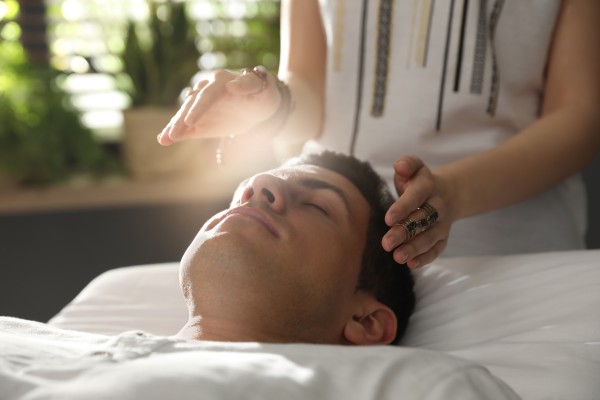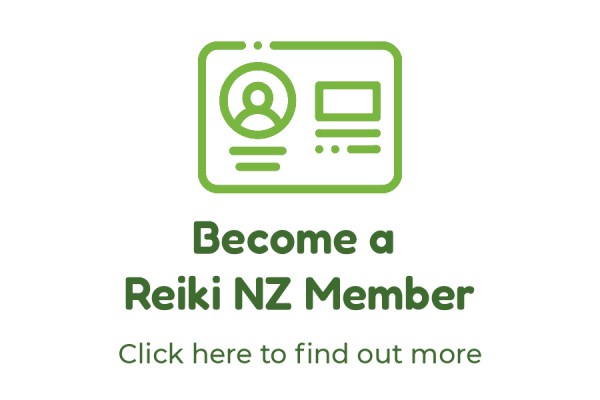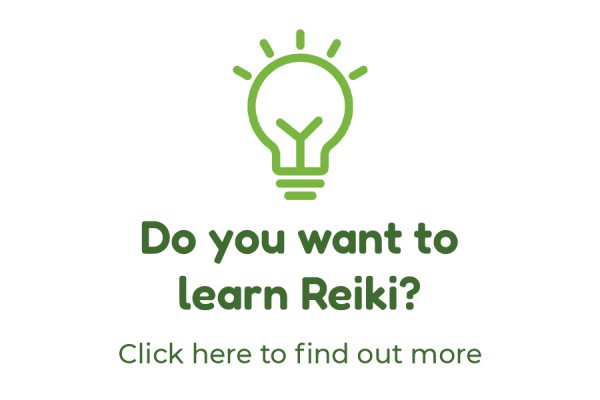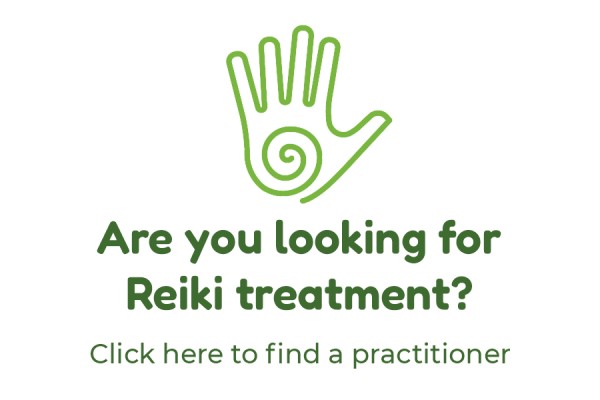What is Reiki?
Reiki is an amazing well-being practice originating in Japan that promotes the healing of body and mind. It is easy to learn for self-treatment and powerful in its ability to provide relaxation and restorative energy. Many Reiki-trained people world-wide give themselves regular Reiki sessions and receive great benefit from them.
Following training, Reiki can be given to other people. Recipients experience relaxation and a sense of being cared for. The Reiki practitioner lays their hands on or over the fully clothed client in various non-intrusive positions as the recipient lies on a massage table or sits in a chair. These positions are mapped out to cover the whole body to assist relaxation. Most people begin to relax very quickly and will often fall asleep. After the Reiki session which is usually about an hour, clients often report a sense of relaxation, revitalisation and peacefulness.
One session can make all the difference but a series of treatments are often recommended depending on individual needs. Experience true rejuvenation with Reiki today!

Reiki has been widely reported to benefit and assist in…
-
Reduction of stress and anxiety;
-
Management of pain;
-
Improved sleep;
-
Replenished energy levels and increased vitality;
-
Enhanced sense of well-being.
Academic research supports the benefit of Reiki in the management of serious health conditions. It is used in hospices and hospitals worldwide.
Reiki Levels:
Reiki Level One: Someone who practises daily self-reiki and can practice for free on family and close friends.
Reiki Level Two: A practitioner who has completed training at this level practises daily self-reiki and can now charge for their services. They should ideally have a Reiki Level One certificate for at least 8 weeks before getting their Reiki Level Two Practitioner Certificate.
Reiki Level 3a / Master Practitioner: A practitioner who has completed training at this level, practises daily self-reiki and will charge for their services. They should ideally hold a Reiki Level Two certificate for at least 9-12 months before obtaining their Reiki Level 3a/Master Practitioner Certificate.
Reiki Level 3b / Master Teacher: A practitioner who has completed training at this level, practices daily self-reiki and will charge for their services. They should ideally hold a Reiki Level Two certificate for at least 9-12 months before obtaining their Master Teacher Certificate. They can teach all levels of Reiki, including attuning their Students.
Accreditation offered by Reiki NZ Inc:
Accredited Reiki Practitioner (ARP): Reiki New Zealand offers a membership for those who have chosen to further their professional development, known as ARP. It provides added assurance that you're working with someone who is:
- Professionally Trained - ARP members have completed advanced Reiki training (Level 2 or higher) and have demonstrated experience in Reiki practice and understanding.
- Ethically Guided - They follow a strict Code of Ethics and Rules of Practice.
- Committed to Growth - They engage in ongoing development and renew their accreditation annually.
- Trusted by the Community - ARP status is recognised by Reiki NZ and is increasingly respected by healthcare professionals.
Receiving a Reiki Treatment
There are many Reiki practitioners in Aotearoa, New Zealand.
A professional practitioner is someone who has completed training in and achieved at least Reiki Level 2. (See Reiki Levels above).
Ideally, a professional practitioner has been trained in workplace first aid, has the appropriate insurance and keeps their certificates up to date by undertaking ongoing training. These should be available on request.
A practitioner should abide by all the relevant laws of Aotearoa, New Zealand, and comply with our Code of Ethics and Rules of Practice, which they sign as part of the Reiki NZ Inc. membership contract. See our Code of Ethics and Rules of Practice here.
One of a practitioner's most important responsibilities is confidentiality, which is clearly stated in the Code of Ethics.
As a client, you should find a compassionate, caring practitioner who works strictly within their qualifications.
The practitioner’s clinic room should be comfortable, clean, and safe, and all their certificates, including their membership certificate, should be displayed.
A Reiki practitioner can clearly explain Reiki and what to expect during and after treatments and may keep treatment records.
The client will feel safe and cared for during the Reiki session, and the practitioner will respect the client’s privacy and personal space during the consultation.
The charges and fee structure should be clearly explained before the Reiki session starts.
Questions to ask a potential Reiki practitioner:
Q: How long and how much is a Reiki session? (Generally, a Reiki session takes 1 hour. Fees vary but are most likely to be between $80-$120.)
Q: How many treatments will I need? (A typical answer may be weekly to begin with, and then whatever frequency you choose. The frequency varies from practitioner to practitioner. There is no right answer.)
Q: Where do you practice and when are you available?
Q: Are you a member of Reiki NZ Inc.?
Q: What is your type of Reiki (Traditional Usui or other)?


